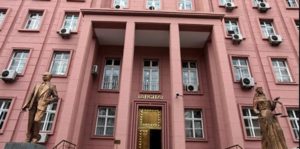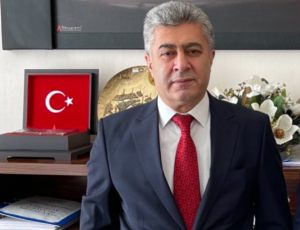Abdullah Bozkurt/Stockholm
Ahmad al-Dahir, a Syrian national who had worked with an Islamic State in Iraq and Syria (ISIS) bomb maker, was released after Turkey’s top curt threw out his conviction, citing a lack of evidence.
Al-Dahir was identified as an ISIS operative by the Turkish counterterrorism bureau in a report issued in May 2019 which stated that he was connected to ISIS bomb expert Taha Abu Muhammad Aqil, who operated in Raqqah and Deir ez-Zor.
When he was arrested, police found a cache of ISIS photos and video footage on his phone including electric wiring schemes that investigators believed was part of bomb making tutorials. He was tried and convicted by the Ankara 13th High Criminal Court, and his conviction was upheld by a regional appellate court.
Yet on July 5, 2021, Turkey’s Supreme Court of Appeals (Yargıtay) overturned his conviction, saying the lower court overlooked the absence of solid evidence and wrongfully convicted al-Dahir.
The top appeals court accepted the defense of al-Dahir, who said in his testimony that he worked as an electrician in Syria when explaining the closed circuit electric diagrams found on his phone. It ordered his immediate release as well.
The Supreme Court of Appeals (Yargıtay) ruling releasing the ISIS convict:
The ruling was made by the 3rd Chamber (formerly the 16th Chamber), which reviews terrorism cases. The chamber’s chairman is Muhsin Şentürk, known to be a loyalist of the government of President Recep Tayyip Erdoğan, and his chamber often upholds convictions of critics, opposition journalists and activists while providing a get-out-of-jail-free card to jihadists.
This case represents yet another example of how the bulk of successful ISIS convictions, already rare in the lower courts, have been thrown out by senior judges who appear to follow the lenient guidelines of the Islamist government of President Erdoğan when it comes to a crackdown on jihadist groups.
The political pressure on the judges and prosecutors who were asked to go easy on jihadists began in 2014, when the Erdoğan government started removing judges, prosecutors and police chiefs who were investigating radical groups in Turkey. The dismissed officials were accused of links to the Gülen movement, led by Turkish Muslim cleric Fethullah Gülen, who has been an outspoken critic of the Erdoğan regime due to pervasive corruption in the government and Turkey’s aiding and abetting of jihadist groups in Syria and Libya.
More than 130,000 civil servants have been dismissed by the government with no effective judicial or administrative investigation, 4,560 of whom were judges and prosecutors and were replaced by pro-Erdoğan, Islamist and neo-nationalist staff. As a result of the massive purge, the Turkish judiciary and law enforcement authorities have become tools in the hands of the Islamist government of President Erdoğan and his allies.

Thousands of militants, both Turkish and foreign, have used Turkish territory to cross into Syria with the help of smugglers in order to fight alongside ISIS groups there. Turkish intelligence agency MIT (Milli İstihbarat Teşkilatı) has facilitated their travel, with Kilis, a border province in Turkey’s Southeast, one of the main crossing points into ISIS-held territory. Human smugglers were known to have been active in the border area, although Turkish authorities often overlooked their trips in and out of Syria.
There have been some cases, however, in which ISIS suspects were detained and indicted on terrorism charges. But very few resulted in convictions in the lower courts. The decision of Turkey’s Supreme Court of Appeals to overturn rare cases of conviction of suspects on ISIS terror charges sets an important precedent in Turkey’s criminal justice system. The ruling will effectively render to zero the chances of convicting an ISIS member on terrorism charges in the lower courts.

Turkish officials do not disclose the number of successful convictions in ISIS cases and decline to respond to parliamentary questions asking for such information. Instead, they often float figures on the number of detentions and arrests, which in many cases result in release and acquittal.
Erdoğan announced on October 10, 2019 that there were around 5,500 ISIS terrorists in Turkish prisons, of which half were foreign nationals. Yet, on October 25, 2019 Justice Minister Abdülhamit Gül stated at a press conference that there were 1,163 ISIS arrestees and convicts in prison.
Responding to a parliamentary question on July 21, 2020, Gül said 1,195 ISIS members were in prisons either as convicts or suspects in pretrial detention. Of these, 791 were foreign nationals, he added. He declined to say how many had actually been convicted.












